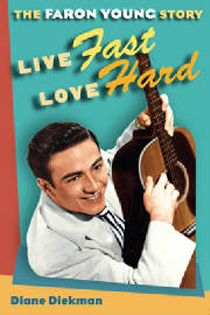Talking Books have me by the ears
While the masses move on to Kindles and electronic reading devices, I dip my toe into the world of audio books. It started with Outlander by Diana Gabaldon. I freely admit that I’m obsessed with Gabaldon’s characters, Jamie and Claire and their entire family. But when I heard Devina Porter’s voice they absolutely came to life.
I’ve read Picoult in the ‘old fashioned’ way and thoroughly adored her writing. She has this magical way of twining such fascinating subjects together – magic and search and rescue and love triangles and alcoholism and fathers and childhood memories – in this book at least. I always learn something when reading her books and while listening to Vanishing Acts, I truly appreciated Picoult’s talent. Not every book was made to be read aloud. Hers works exceptionally well and the pace was perfect because it is a book that requires some thought, some mulling over and the slower pace of the readers words worked perfectly with my brain’s timing. The readers are: Jonathan Davis, Julia Gibson, Jim Jenner, Robert Ramirez and Sharon Washington.
I have also enjoyed an audio book of one of Lillian Jackson Braun’s Cat Who mystery series read by George Guidall. If you visit Amazon.com and click onto George’s name or any narrator/reader’s name, you’ll find a list of other works they have recorded. Guidall also has narrated: Extreme Measures and other novels by Vince Flynn, The Notebook by Nicholas Sparks, Night by Elie Wiesel, and Wolves of the Calla and several other novels by Stephen King.
Friends have made some suggestions. One recommended Barbara Kingsolver reading her own works. (Poisonwood Bible, etc.) Another, who can only listen to nonfiction and must read fiction gladly suggested Devil in the White City by Erik Larson, but didn’t mention who did the reading. I suspect it was Scott Brick. Scott has gotten rave reviews by a few other friends, too. He narrates along with a cast of other voices the sci-fi classic Dune by Frank Herbert.
I also asked for recommendations from members of my favorite mystery list: DorothyL which resulted in an interesting discussion of readers as well as suggested listening. Someone offered the Ian Rankin Rebus series, but couldn’t remember the reader’s name. I believe it is James Macpherson.
Joe Mantegna’s reading of the Spenser series written by Robert. B. Parker received several positive comments. One member mentioned that, “ Mantegna captures the poetic rhythm that Parker writes into his dialog.”
Also anything read by Barbara Rosenblatt got a thumbs up. She reads among other things the Lisa Scottoline, Linda Fairstein, Sarah Graves and Diane Mott Davidson mysteries.
Other recommended readers:
Dick Hill
Phil Gigante (reads Karen Moning’s Beyond the Highland Mist)
Jeff Woodman
John McDonough who reads Jan Karon’s Mitford series.
One that might be a real winner during the Christmas season – Charles Dicken’s classic A Christmas Carol as read by Orson Welles.
If still in doubt who to listen to, check out the awards list. Yes, in addition to Emmys and Edgars, Golden Globes and Tonys, there are Audies – awarded by the Audio Publishers Association. The 2008 winners list offers an opportunity read an excerpt and of course listen as well. Audio File Magazine offers reviews as well as excerpts. I listened to Sue Monk Kidd’s “Secret Life of Bees” – I think its one I would want to listen to from beginning to end. A brief listen to Xanthe Elbrick’s reading of Kathleen Woodiwiss’s Everlasting leaves me entranced by her delightful voice. And listen to some of the children’s books. Jessica Almasay’s narration of Clementine by Sara Pennypacker is especially fun. Meryl Streep and Stanley Tucci invited me right into The One and Only Shrek by William Steig and I was bereft when the excerpt ended. I am afraid that this may be the next book I must download.
Most public libraries have a healthy collection of audio books including some classics I haven’t been able to wade through the ‘old fashioned’ way, but maybe by listening and knitting my way through them, I can find a better way to appreciate the old masters. And I can’t think of a more exciting adventure than to give voice to some of my old favorites – Little Women by Louisa May Alcott or Jane Eyre by Charlotte Bronte or….

























